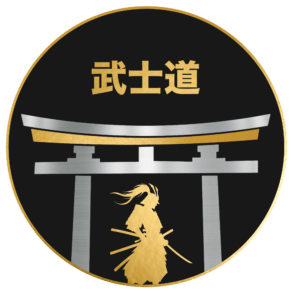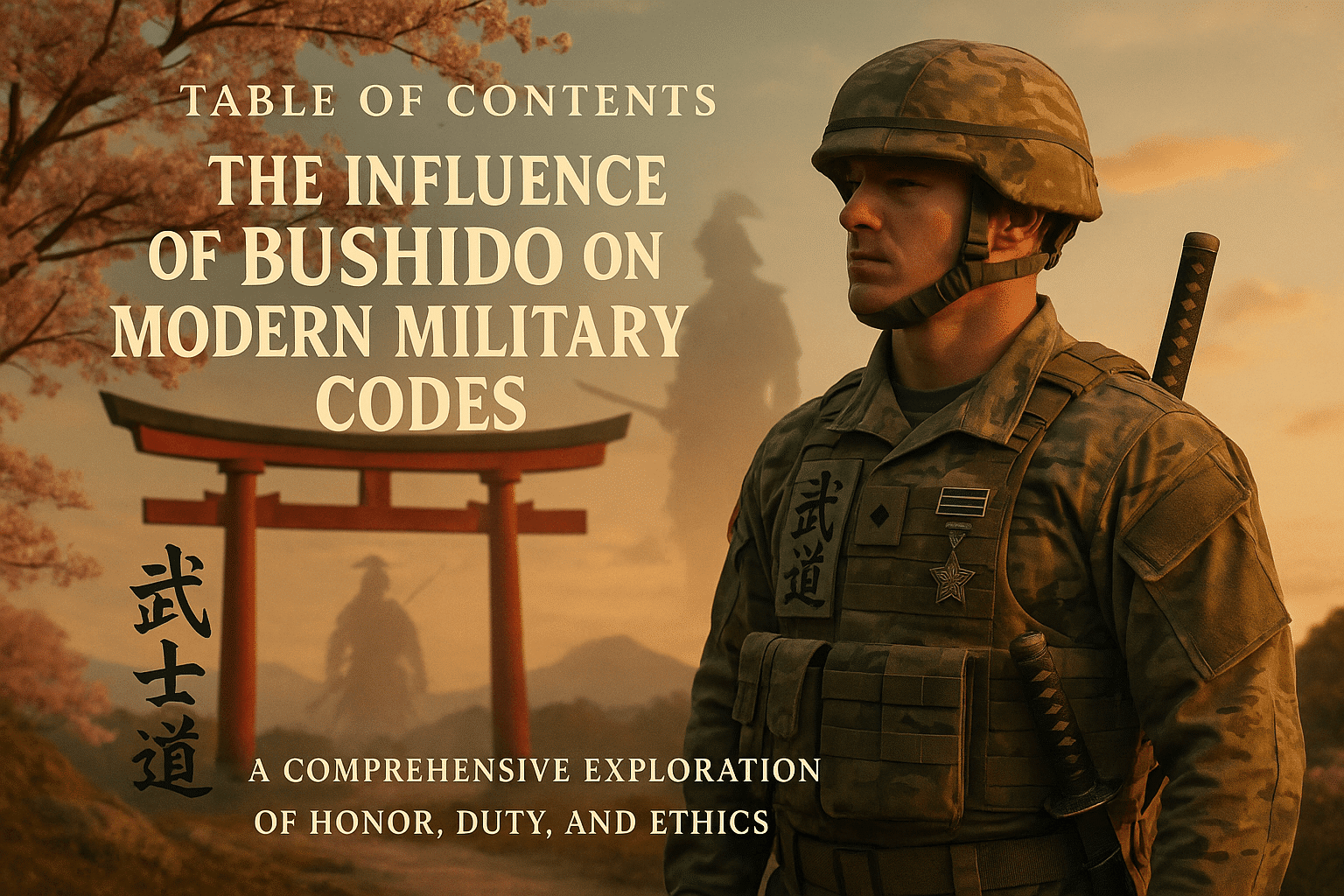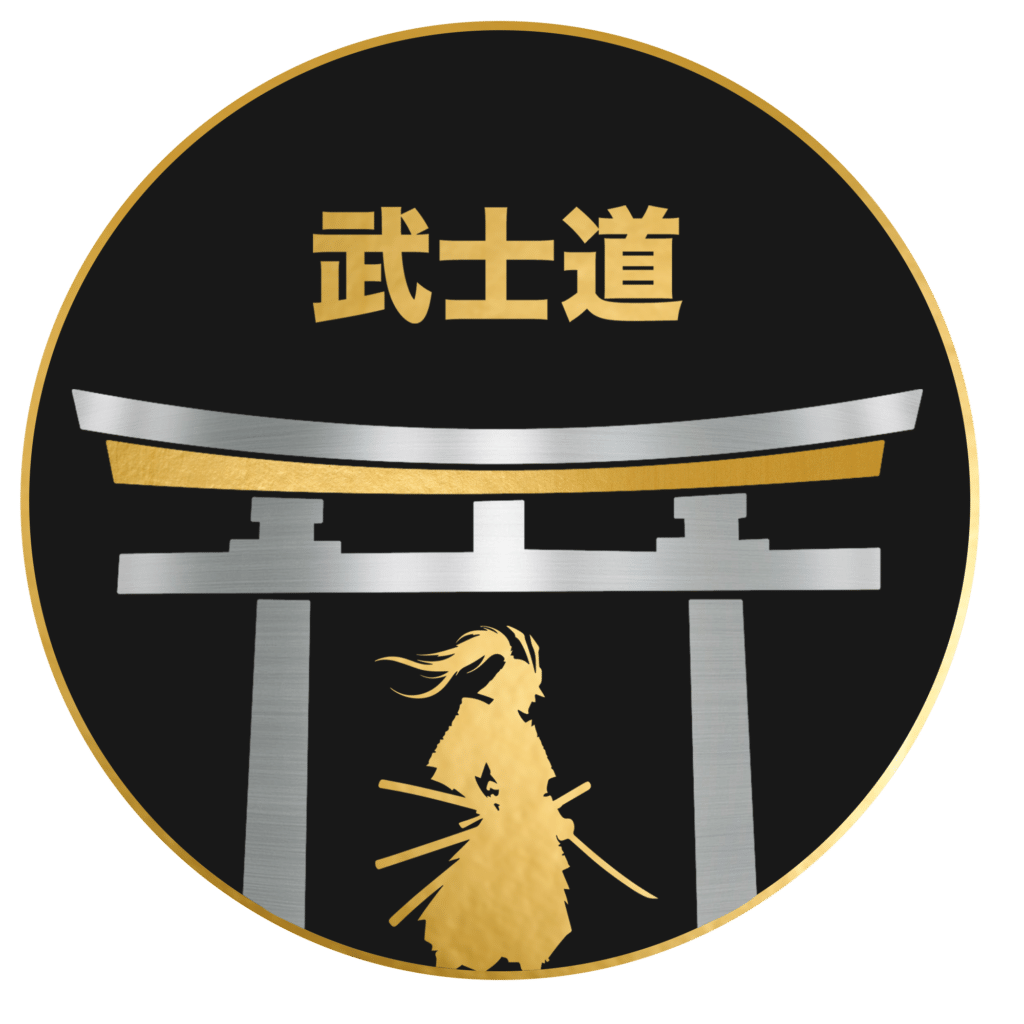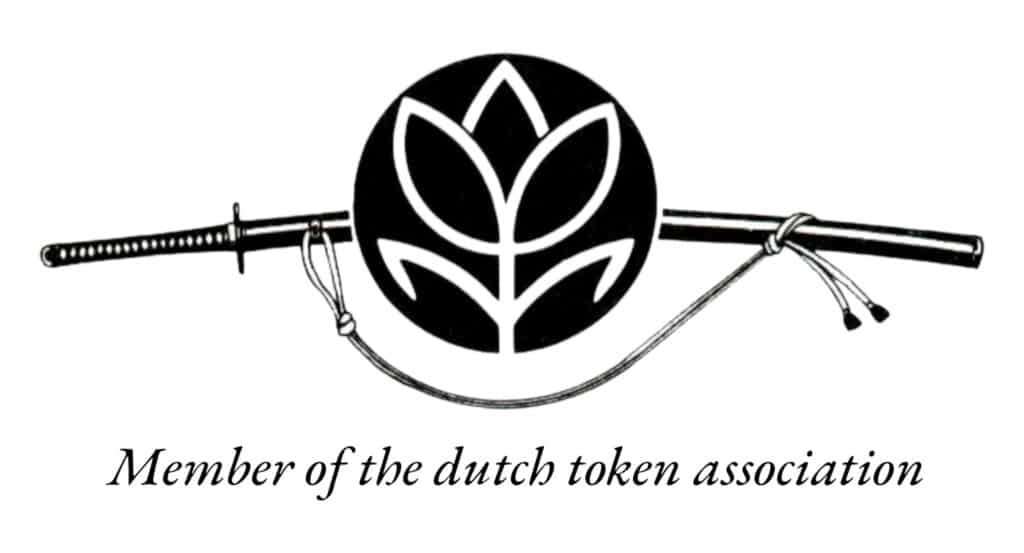Introduction: Echoes of the Samurai
Centuries after the samurai vanished from Japan’s battlefields, the spirit of Bushido—the “way of the warrior”—continues to resonate within modern military codes across the globe. Born from a fusion of Shinto, Confucian, and Zen Buddhist philosophies, Bushido served as the ethical backbone of the samurai, emphasizing principles such as honor, loyalty, courage, discipline, and self-sacrifice. Far more than a set of battlefield tactics, it was a moral compass that guided warriors’ actions both in war and in peace.
Today, echoes of these timeless values inform military doctrines, ethical training, and codes of conduct. Whether in the ceremonial reverence for duty, the unyielding loyalty to comrades, or the emphasis on moral integrity in leadership, Bushido’s legacy quietly shapes the ethos of modern soldiers. This article explores how these ancient principles have transcended time and culture, embedding themselves in today’s military institutions and continuing to define what it means to serve with honor.
What Is Bushido? Roots in the Way of the Warrior
Bushido, often translated as “the way of the warrior,” was the ethical code that governed the conduct of the samurai, Japan’s elite warrior class, from as early as the 10th century. Deeply rooted in Shintoism, Buddhism, and Confucianism, Bushido evolved into a formalized system during the late medieval period, especially as the samurai rose in influence during the feudal era.
At its core, Bushido emphasized virtues such as loyalty, honor, courage, self-discipline, and benevolence. Samurai were expected to uphold their lord’s will even unto death, with failure to do so often leading to ritual suicide (seppuku) as an act of redemption. This code was not merely martial—it shaped a moral compass that permeated every aspect of a samurai’s life, defining his role as both a warrior and a man of integrity.
Bushido wasn’t codified in a single text but rather passed down through generations, refined through works such as Yamaga Sokō’s writings and later Nitobe Inazō’s Bushido: The Soul of Japan, which introduced the philosophy to a Western audience. As Japan modernized, Bushido’s legacy endured, influencing societal values and eventually becoming interwoven with the cultural fabric that would shape modern military ethos.
Honor and Duty: Parallels in Modern Military Codes
In contemporary military organizations across the globe, the echoes of Bushido—the samurai’s code of honor—resonate deeply within protocols, training, and ethos. Central to Bushido are values like loyalty, discipline, and honor, which remain cornerstones of modern military conduct.
Loyalty, a defining trait of the samurai’s allegiance to their lord, finds its counterpart in the unwavering commitment soldiers pledge to their country, unit, and command. This devotion reinforces unity and ensures mission cohesion, just as samurai loyalty ensured service even in the face of personal sacrifice.
Discipline, another hallmark of Bushido, mirrors the rigorous regimen of today’s armed forces. From strict adherence to protocol to relentless training routines, modern militaries cultivate a sense of order and mental resilience that would have resonated with the stoic precision of samurai warriors.
Honor, perhaps the most enduring thread, continues to define soldierly identity. Whether in codes like the U.S. military’s core values or the British Army’s emphasis on integrity and selfless commitment, the principle of living—and if necessary, dying—with honor remains sacred. Just as the samurai held their reputation in life and death, modern soldiers strive to uphold the dignity of their service and their nation.
Though centuries have passed, Bushido’s spirit endures, shaping the moral and professional fabric of militaries worldwide. It provides not only a historical blueprint but also a timeless reminder of the values that sustain those who serve.
Global Footprint: Bushido’s Influence Beyond Japan
While Bushido—the samurai code of honor rooted in Japanese feudal tradition—originated in Japan, its core tenets have transcended national boundaries and influenced military cultures across the globe. Concepts such as loyalty, duty, discipline, and moral integrity have found fertile ground in modern military institutions far beyond Japan’s shores.
In the United States, elements reminiscent of Bushido surfaced during the 20th century, particularly in elite units like the Marine Corps and Special Forces. The U.S. military’s emphasis on honor, courage, and commitment parallels many Bushido principles, and during World War II, close encounters with Japanese forces led American military thinkers to study and even respect Bushido as a framework for unwavering battlefield discipline.
In Europe, codes of military ethics such as Britain’s Officer Code or the French military’s emphasis on honor and esprit de corps resonate with Bushido’s elevation of personal character and martial responsibility. These parallels reveal a shared martial ethos that transcends culture and geography.
In more recent decades, Bushido has even gained influence in countries like Brazil and the Philippines, where martial arts communities and military academies have adopted samurai-inspired values to instill discipline and respect among their ranks. Martial arts like judo, kendo, and aikido—steeped in Bushido philosophy—serve as both physical training and moral education in these institutions.
This global integration underscores Bushido’s adaptability and timeless relevance. As militaries around the world continue to navigate complex moral landscapes, the warrior’s code forged in medieval Japan remains a powerful guide for ethical conduct under pressure.
Training the Mind: Discipline and Inner Strength
Bushido, the code of the samurai, placed immense value on cultivating a disciplined mind and unshakable inner strength—qualities mirrored in today’s modern military ethos. At its core, Bushido demanded that warriors master not just the sword, but also themselves. Through meditation, ritual, and relentless self-control, samurai honed their ability to remain calm in chaos, make swift ethical decisions under pressure, and face death without fear. These mental attributes were considered as critical as physical prowess.
Modern military training continues this legacy by fostering psychological resilience and mental toughness. Boot camps, officer training programs, and elite special forces schools all incorporate stress inoculation techniques, decision-making under duress, and emotional regulation exercises—echoes of the mental fortitude revered in Bushido. Soldiers are taught that discipline extends beyond following orders; it’s about internal regulation, focus, and honor in adversity.
This convergence between ancient and modern philosophies highlights a shared belief: true strength lies not just in the body, but in the mind’s ability to endure, adapt, and act with integrity.
Moral Compass: Bushido and Military Ethics
In the crucible of combat and the weighty responsibility of command, ethical clarity is essential. Bushido—the ancient code of the samurai—offers a powerful compass for military professionals navigating decisions where lives are at stake and honor is on the line. Rooted in virtues like loyalty, courage, righteousness, and respect, Bushido sets a foundation for moral integrity that extends beyond tradition into practical application on modern battlefields.
Military leaders around the world increasingly recognize this framework as a way to balance mission success with humane conduct. For example, the Bushido principle of gi (righteousness) aligns with rules of engagement that prioritize ethical action even in hostile environments. Similarly, makoto (sincerity) and rei (respect) reinforce accountability, integrity, and the dignified treatment of both allies and adversaries.
Bushido’s emphasis on moral restraint serves as a counterbalance to the dehumanizing effects of war. It tempers aggression with honor and couches duty in the context of justice. For officers, this philosophical grounding fosters ethical command decisions, clarity in crisis, and unwavering respect for the human consequences of military power.
By echoing the code of the samurai, today’s military ethics not only maintain discipline and professionalism—they cultivate a warrior ethos built on conscience, character, and the enduring principle that true strength lies in moral choice.
Conclusion: A Code That Lives On
Bushido, though born in feudal Japan, continues to echo through the halls of modern military institutions around the world. Its unwavering emphasis on honor, loyalty, courage, and discipline offers a timeless compass for those who serve. While technologies advance and geopolitical landscapes shift, the ethical foundation that Bushido provides remains remarkably relevant. Today’s military codes may vary in formality and expression, but their spirit often mirrors the samurai ethos—guiding soldiers not just in combat, but in character. In an age where integrity and responsibility are as critical as strategy and strength, Bushido endures as a living code, quietly shaping the hearts and minds of modern warriors.





